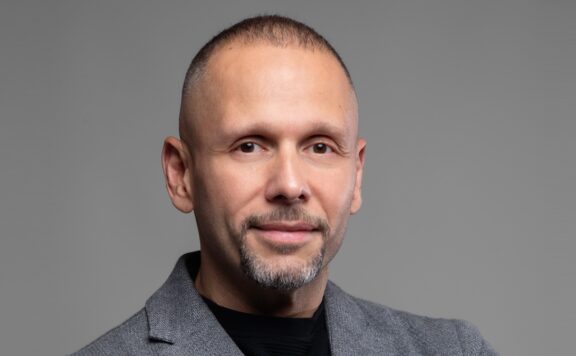Alexander Epure, founder of Qureos, highlights how the platform transforms careers by bridging skill gaps through AI, mentorship, and upskilling, delivering personalized paths and seamless talent-job alignment for impactful outcomes.
What inspired you to create Qureos, and how has your vision evolved since the company’s inception?
Qureos was started in 2022 to democratize access to mentorship and career growth with a mission to accelerate 100 million careers. I was inspired by the need to bridge skill gaps and connect individuals with the right opportunities at the right time.
Qureos focuses on enhancing professional profiles and aligning talent with suitable roles using advanced technology. Over time, the vision has evolved to include personalised career paths and AI-driven recruitment, enabling individuals and organizations to achieve their goals more effectively.
What were the most significant challenges you faced in building Qureos, and how did you overcome them?
One of the biggest challenges in building Qureos was tackling the “chicken-egg” problem—needing talent to attract jobs and jobs to attract talent. To overcome this, we initially focused on offering upskilling courses and mentorship, providing immediate value to talent while building a critical mass of engaged learners. Once we reached this tipping point, we launched the platform for businesses to recruit, creating a balanced ecosystem of talent and opportunities. This strategic approach helped us establish credibility, scale operations, and achieve sustainable growth.
How does Qureos leverage technology to create a unique and impactful learning and career acceleration experience?
Our AI-driven platform matches talent with relevant job opportunities based on their qualifications and career goals, ensuring alignment with their aspirations. It also provides valuable feedback on skills and gaps to focus on, guiding users toward targeted upskilling. Additionally, the platform helps improve professional profiles for job applications, enhancing visibility and increasing the likelihood of securing roles. By combining mentorship, upskilling, and AI-driven insights, Qureos empowers individuals to navigate their career journeys effectively and achieve their goals.
What role do emerging technologies play in enhancing Qureos’ offerings?
Emerging technologies like AI and ML are central to Qureos’ offerings, enabling hyper-personalization at scale. These technologies tailor experiences for both job seekers and employers, ensuring precise matches based on individual goals and needs. We aim to provide a personal AI career advisor for job seekers and an AI hiring assistant for recruiters, streamlining guidance and decision-making. By reducing friction in the recruitment process, Qureos shortens the time to hire, creating seamless experiences for both parties. This integration of AI and ML allows us to deliver impactful, scalable solutions that drive better outcomes for talent and businesses alike.
What is the core business model of Qureos, and how do you ensure it delivers value to both learners and mentors?
Qureos operates on a results-driven business model focused on job placements. Recruitment and human capital are inherently complex due to individual differences, which is why we combine advanced technology with dedicated customer support to help clients achieve their goals. We charge a subscription fee for ongoing services and an additional fee upon successful job placements. By prioritizing outcomes, we ensure value for both talent and mentors, aligning our success with theirs. This approach enables us to grow sustainably while delivering meaningful career acceleration and hiring solutions for all stakeholders.
How do you measure success in terms of user outcomes and the overall impact of the platform?
At Qureos, we measure success by the outcomes achieved for both talent and employers. For talent, key metrics include job placement rates, time to secure a role, and improvements in profile data points, reflecting skill and career growth. For employers, success is defined by reduced time-to-hire and lower recruitment costs, ensuring efficiency and value. Additionally, we monitor platform engagement for both talent and employers to assess the overall effectiveness and ensure the platform delivers meaningful value. These insights help us continuously refine our offerings to drive impactful results for all users.
What growth opportunities do you see for Qureos globally and in the Middle East, particularly in addressing regional skill gaps?
Qureos sees significant growth opportunities globally and in the Middle East by leveraging key insights into talent interests, qualifications, and engagement with specific roles. With visibility into 70-80% of GCC job opportunities, we bridge the gap between talent and market demand. This dual perspective enables us to identify skill gaps by country, industry, and job role automatically. By addressing these gaps, we match the right talent to the right roles while providing personalized feedback to help talent upskill effectively. This unique approach positions Qureos to address regional skill gaps and drive impactful career outcomes at scale.
How do you differentiate Qureos from other career development & recruitment platforms in the market?
Qureos differentiates itself by focusing on the unique dynamics of the GCC region, including its diverse labour laws, data privacy regulations, and cultural nuances. Unlike other platforms, we prioritize a data-first approach to recruitment, ensuring precise matches between talent and roles by leveraging deep insights on both job seekers and employers. This rich dataset, combined with proprietary AI algorithms, enables us to predict key trends and deliver highly accurate talent-job matches. By streamlining the recruitment process with this foundation, Qureos provides a seamless experience while addressing the specific needs of the GCC market effectively and efficiently.
What are your key priorities and milestones for Qureos in the next 12-18 months?
In the next 12-18 months, Qureos aims to scale its platform, expand its user base, and enhance its AI capabilities to better serve learners and employers, focusing on regional expansion and technological innovation.
What advice would you give to aspiring entrepreneurs who are looking to solve complex problems like education and employment gaps?
For aspiring entrepreneurs tackling complex problems like education and employment gaps, my advice is to focus on understanding the problem deeply—know your audience, their pain points, and the ecosystem. Start small, test solutions, and iterate based on feedback. Embrace technology like AI to scale and personalize solutions but remain grounded in human-centric design. Persistence is key; solving systemic challenges takes time but creates meaningful, long-term value when approached strategically. Stay committed to your mission and be adaptable to changes along the journey.





